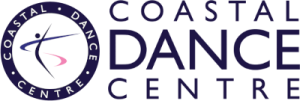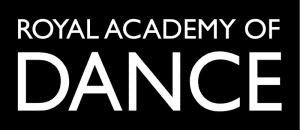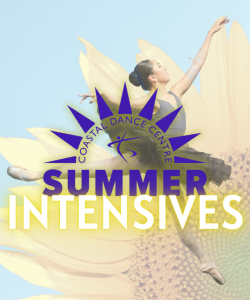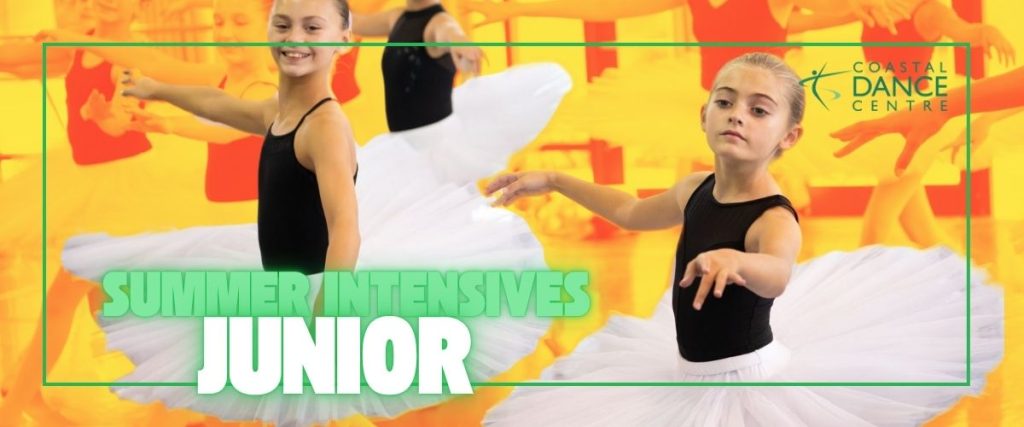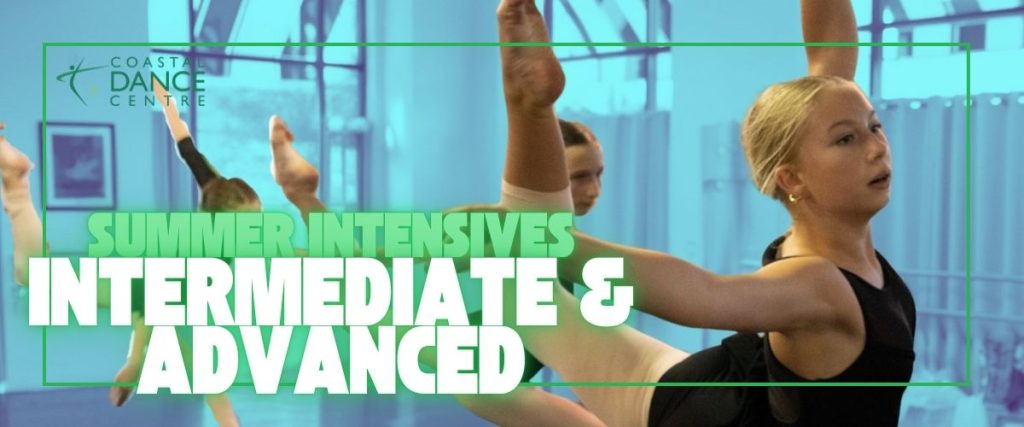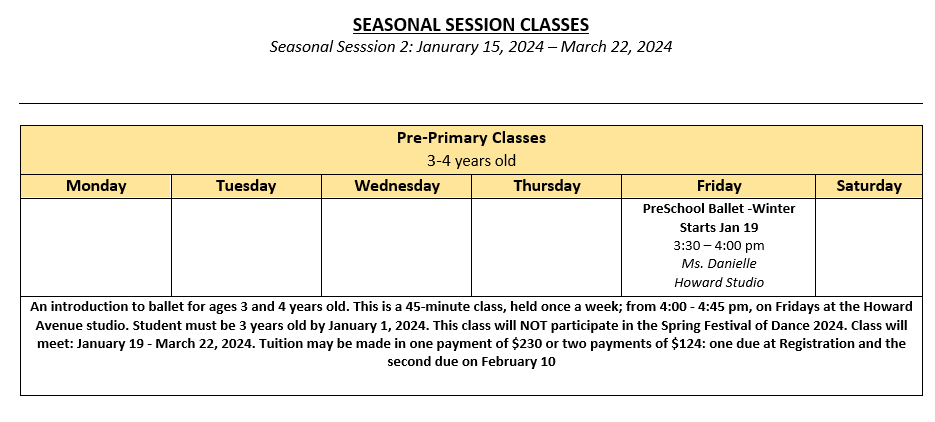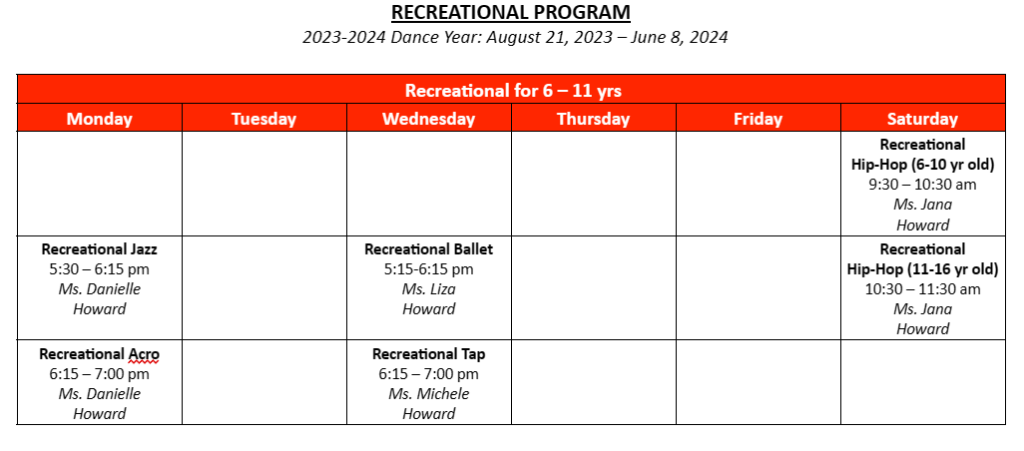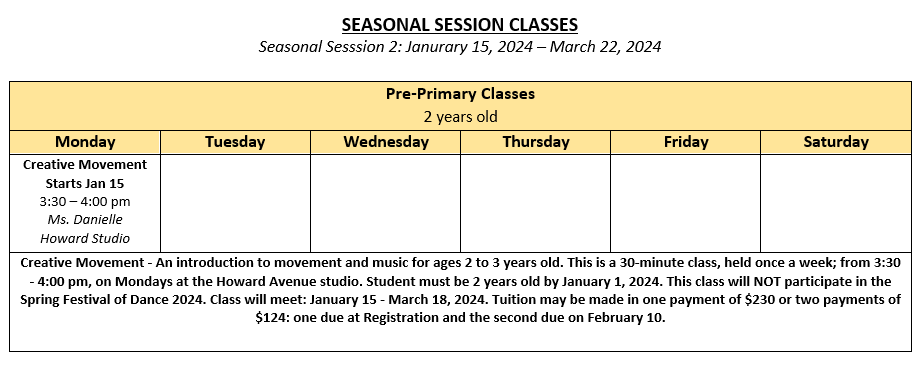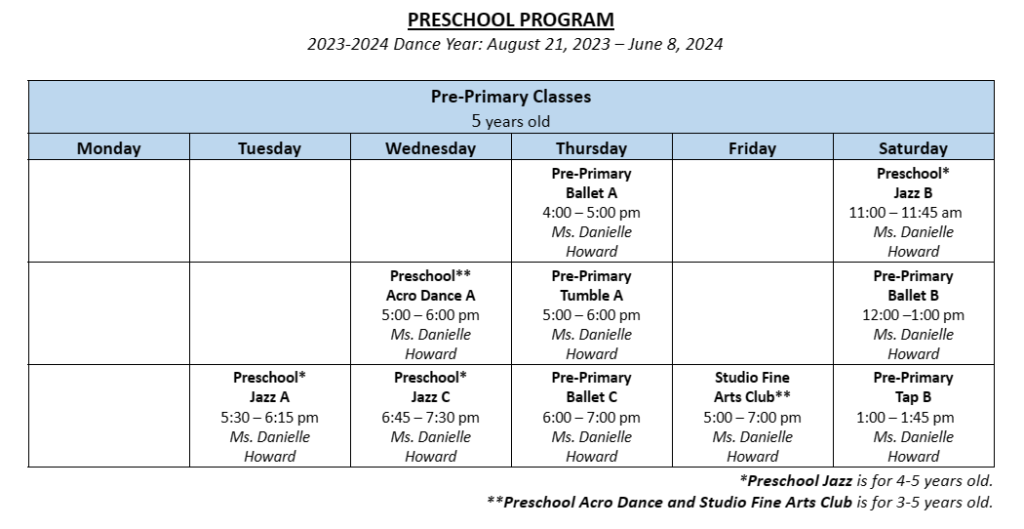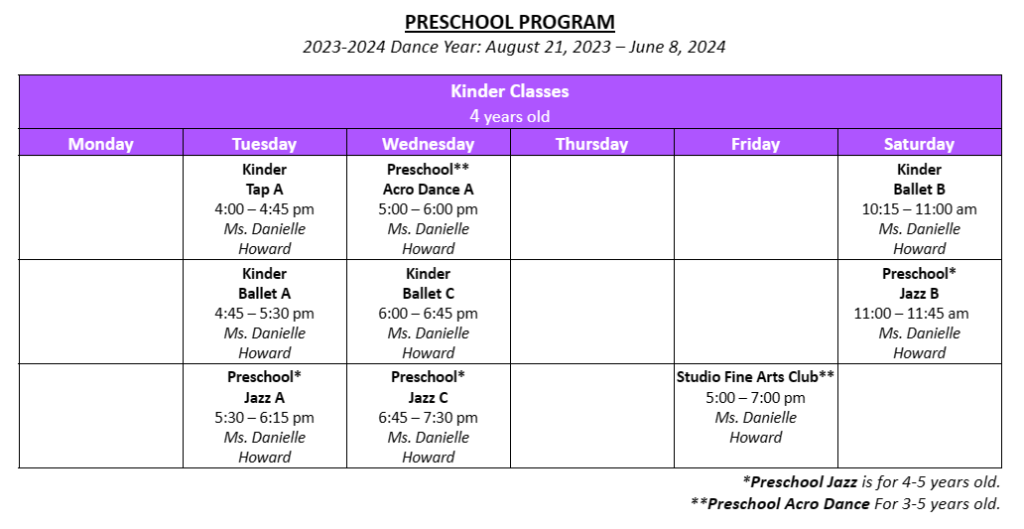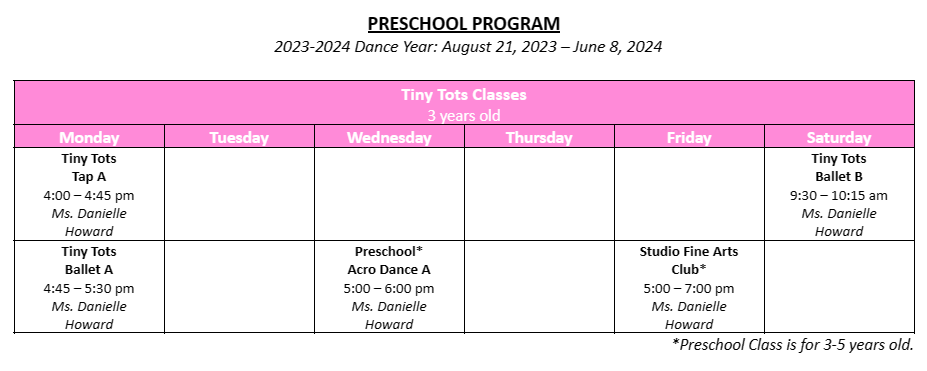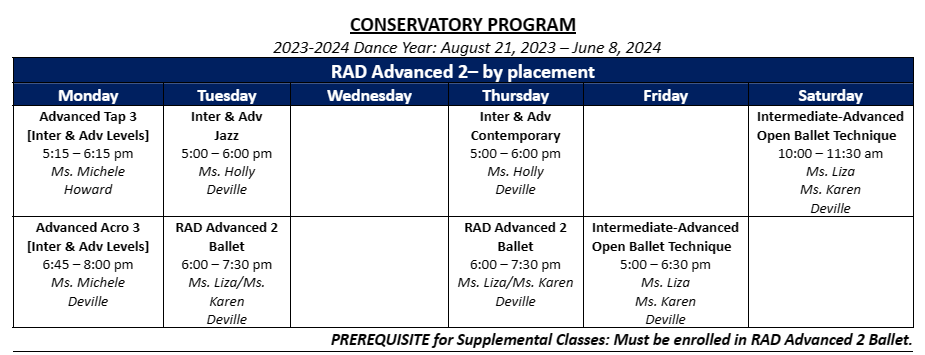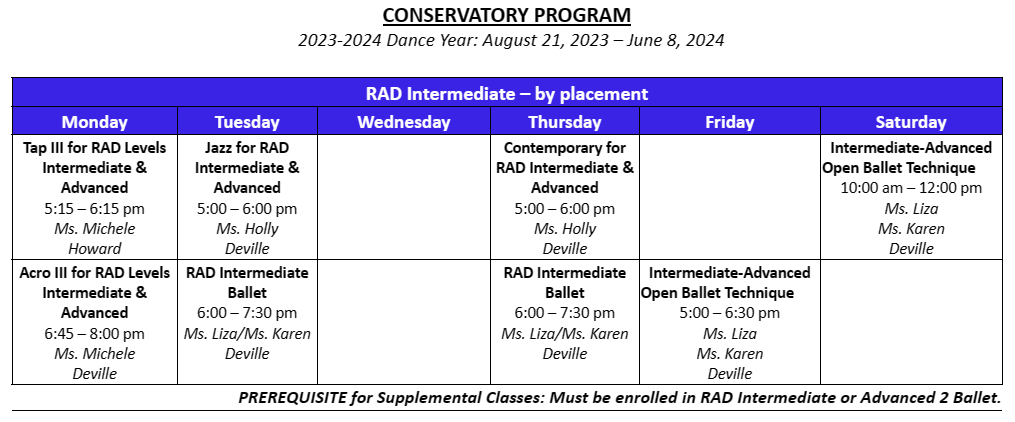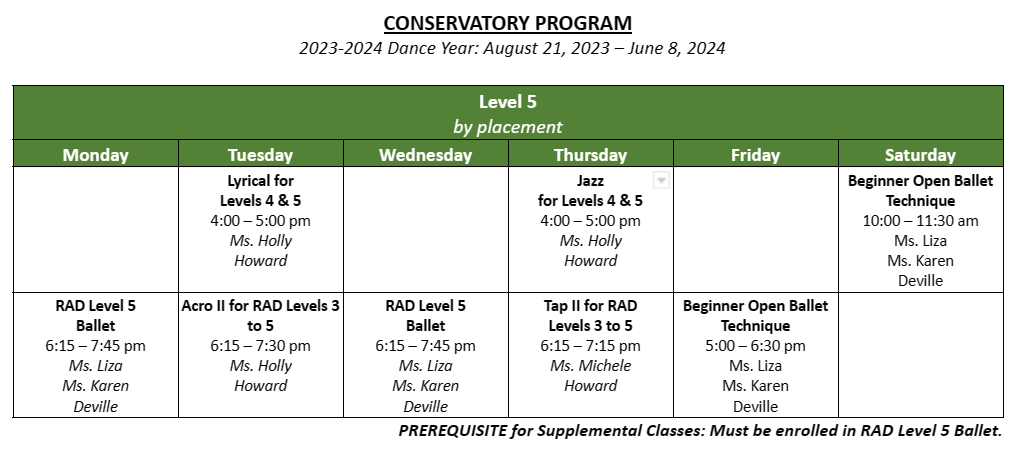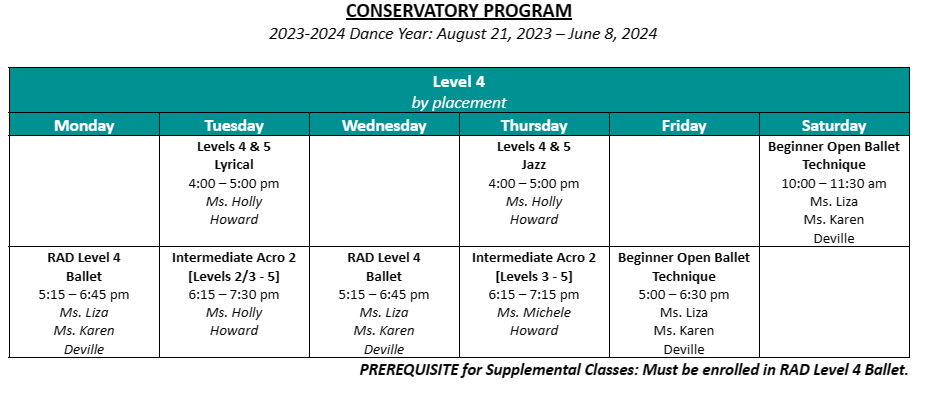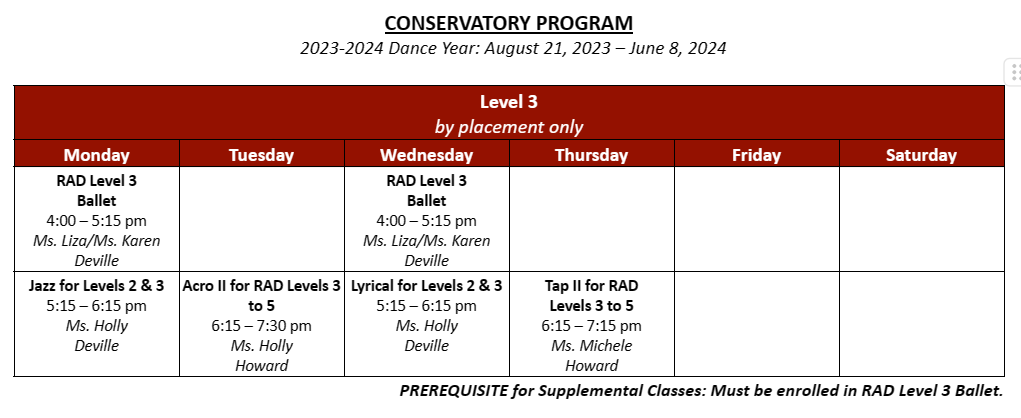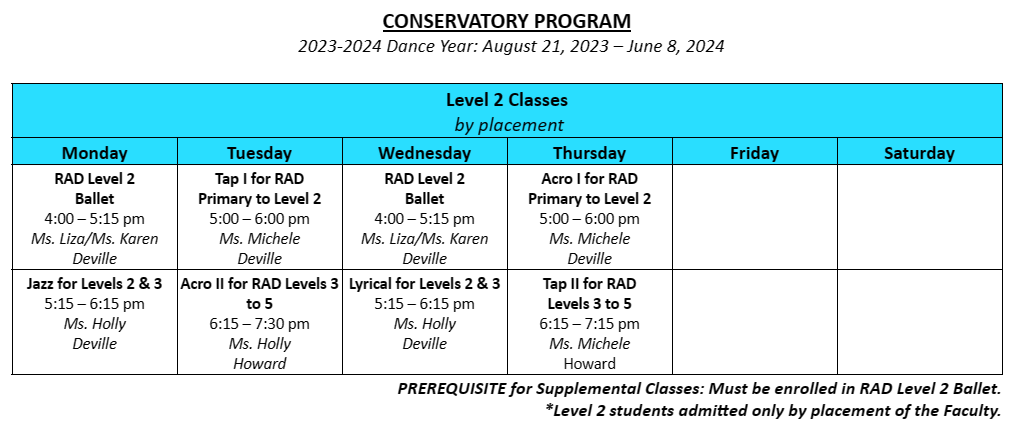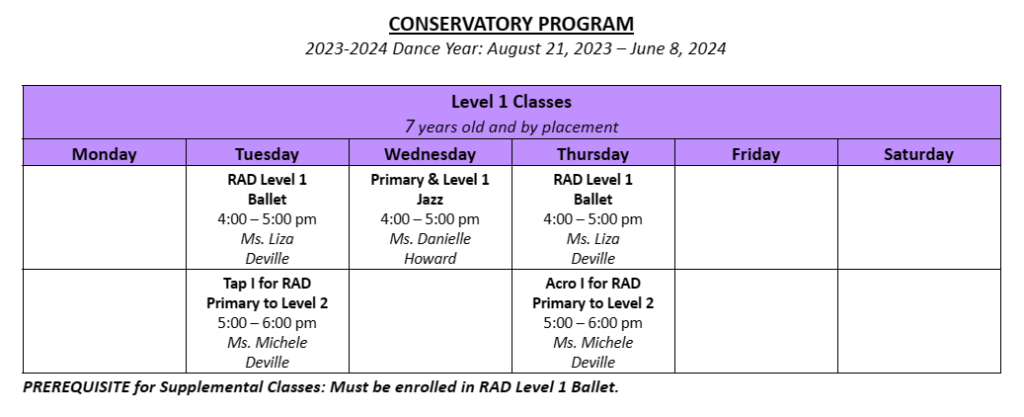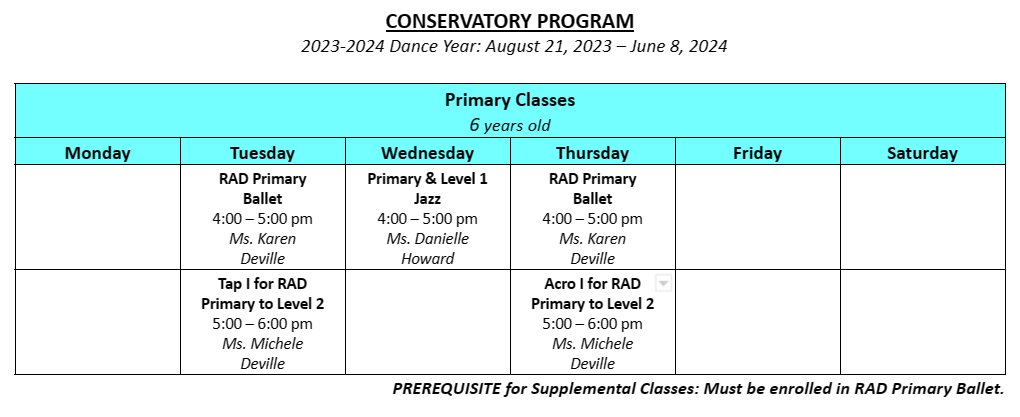The Royal Academy of Dance (RAD) was founded in 1920 and is the largest examining body of classical ballet worldwide. Its syllabus is taught in over 83 countries, with an international network of examiners assessing well over 250,000 pupils, providing students with an annual goal to strive for and an indication of their progress.
Coastal Dance Centre ballet classes are taught according to the Royal Academy of Dance (RAD) Syllabus method.
Coastal Dance Centre’s students are placed in the level most appropriate for their age, skill level and ability from Pre- Primary through to Advanced levels. This ensures that the teaching of technique and the building of discipline and stamina parallels the physical and emotional readiness of the student.
RAD Ballet Syllabus – The Syllabus is devised to progress in difficulty from one grade to the next and a student studying the grades in sequence would be expected to develop a greater degree of dance technique at each level. Each level has a specific class attendance requirement, increasing in number as the levels progress.
RAD Grades Class Levels are
- Pre-Primary in Dance
- Primary in Dance
- Grades 1 – 5
- Grade 6 – 8
- Intermediate Foundation
- Intermediate
- Advanced Foundation
- Advanced 1&2, and
- Solo Seal (Must hold Advanced 2 with Distinction)
Grades and Vocational examinations are held once a year. The marking is more stringent in the upper exams.
Students in the Grades classes study classical ballet, free movement and character dance.
Classical Ballet work is the foundation and the most important part of the RAD Graded Syllabi and includes:
Free Movement incorporates movements in common with other dance styles such as natural movement, contemporary based dance and Greek dance. It does not have to include codified dance vocabulary and is usually an improvisation based on the student’s interpretation of a piece of music.
Character Dance is the theatrical presentation of National dance using original ethnic dance and music which has been freely adapted for the theatre. There are three styles – Hungarian, Russian and Polish – and these were selected because of their historic importance in the development of the traditional full-length classical ballets.
RAD Grades finish at Level 8, and the Vocational levels commence cross-training at Grades 5-6. Grades and Vocational exams are held once a year. The marking is more stringent in the upper level exams.
In the Vocational levels (Intermediate through to Advanced,) purely classical work is studied, with Pointe work included for females. Students usually must be at least twelve years of age before going en pointe. This is because bones and growth plates in the feet are not yet fully hardened and developed prior to this age, and they can be injured very badly by pointe work, even if the student is otherwise strong and skillful.
Frequently Asked Questions:
The RAD offers a holistic approach to learning ballet and emphasizes the importance of inspiration and dedication.
Examinations give the students a chance to show the progress they have made during the year. Preparing for exams allow students to work toward an end goal in sight and is an ideal way of ensuring the students have a more focused learning and higher standards overall.
The RAD certificate provides a foundation for future teacher certification if students should desire to become teachers of dance. As there are few teacher certification programs available to classical ballet dancers, this is a valuable credential for future dancers and teachers.
There are no exams at the Pre-School level. Examinations are offered at the Primary Ballet level and higher.
Students who enter RAD examinations are expected to be able to execute the work confidently and securely, demonstrating a firm grasp of the technique required with good musical timing, response and expression. The RAD Examiner visits the CDC studio in the Spring to conduct the Examinations
Students enter the room in groups of up to 4 at a time without the teacher being present. The examiner and pianist/music player are the only people who see the exam. Teachers may only enter the exam room to bring refreshments or urgent messages.
They must therefore be able to perform all the exercises and dances they have learned in class without prompting. Marks are given for each section and a mark out of 100 is awarded.
Marks are given for each section and a mark out of 100 is awarded.
40 – 54 marks constitute a “Pass” Grade
55 – 74 marks constitute a “Merit” Grade
75 – 100 marks constitute a “Distinction” Grade
Since 2006, Coastal Dance Centre students have been entered into examinations with very successful results.
Any registered CDC RAD ballet student who is able to meet the attendance requirements and achieves a high technical standard and criteria is eligible to enter an RAD exam. The RAD teachers will determine whether a student is ready to be entered for an exam based on a variety of factors including technical ability, maturity, strength, knowledge of the syllabus, etc.
No, participation in an exam is not mandatory, although we encourage all enrolled students to participate in these exams for more learning opportunities.
In order to prepare students to demonstrate to their highest potential, the students do RAD coaching sessions and a mock exam.
Yes, there is the RAD examination entry fee and the miscellaneous fee.
RAD Character Skirt Rental Fee: For students in RAD Ballet Levels 1-5: $15 for the full year; this is to be paid at the time of registration.
RAD Ballet Examination Fees: (Applies to Royal Academy of Dance examination students only)
The RAD Exam Fee: The RAD exam fee is the standard rate charged by the Office of Royal Academy of Dance headquarters to cover the cost of the RAD Examiner’s professional fee, travel and accommodation expenses. Based on 2019 fee schedule – Exam fees ranged from $66 – $115 based upon the examination level a student is taking.
The RAD Miscellaneous Fee: CDC charges a fee per student /per examination level to cover the RAD coaching sessions and for the pianist’s / music player’s fees. The miscellaneous fee is $95.
